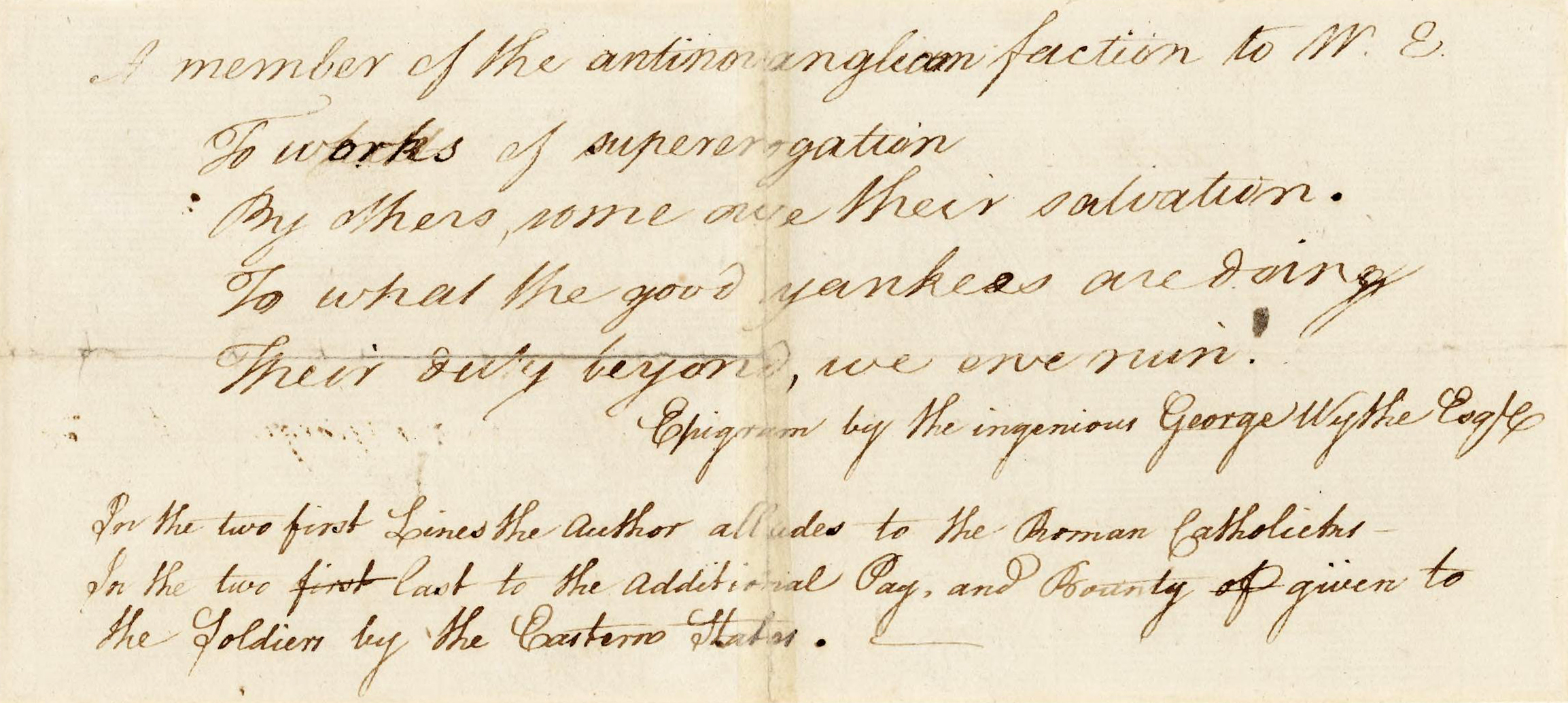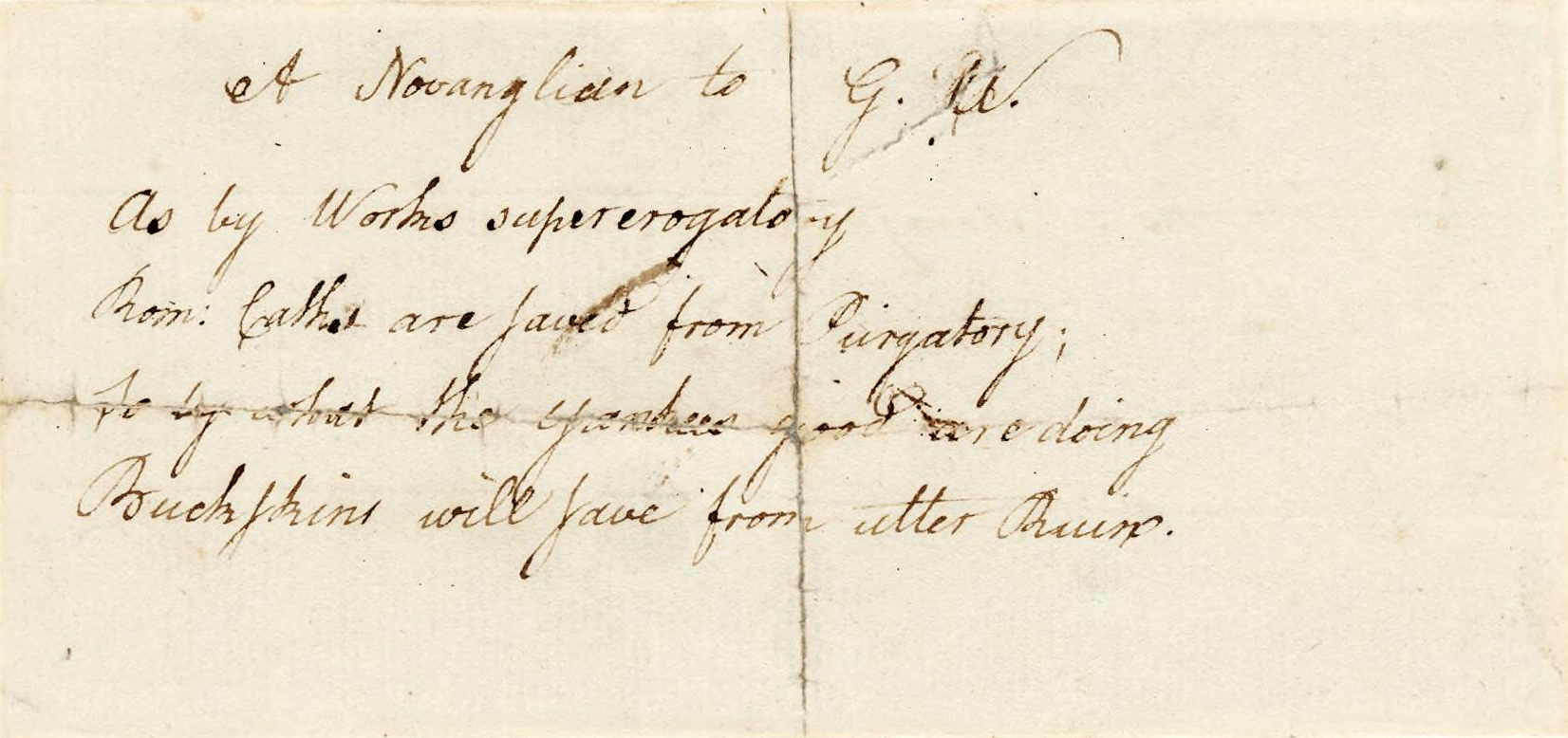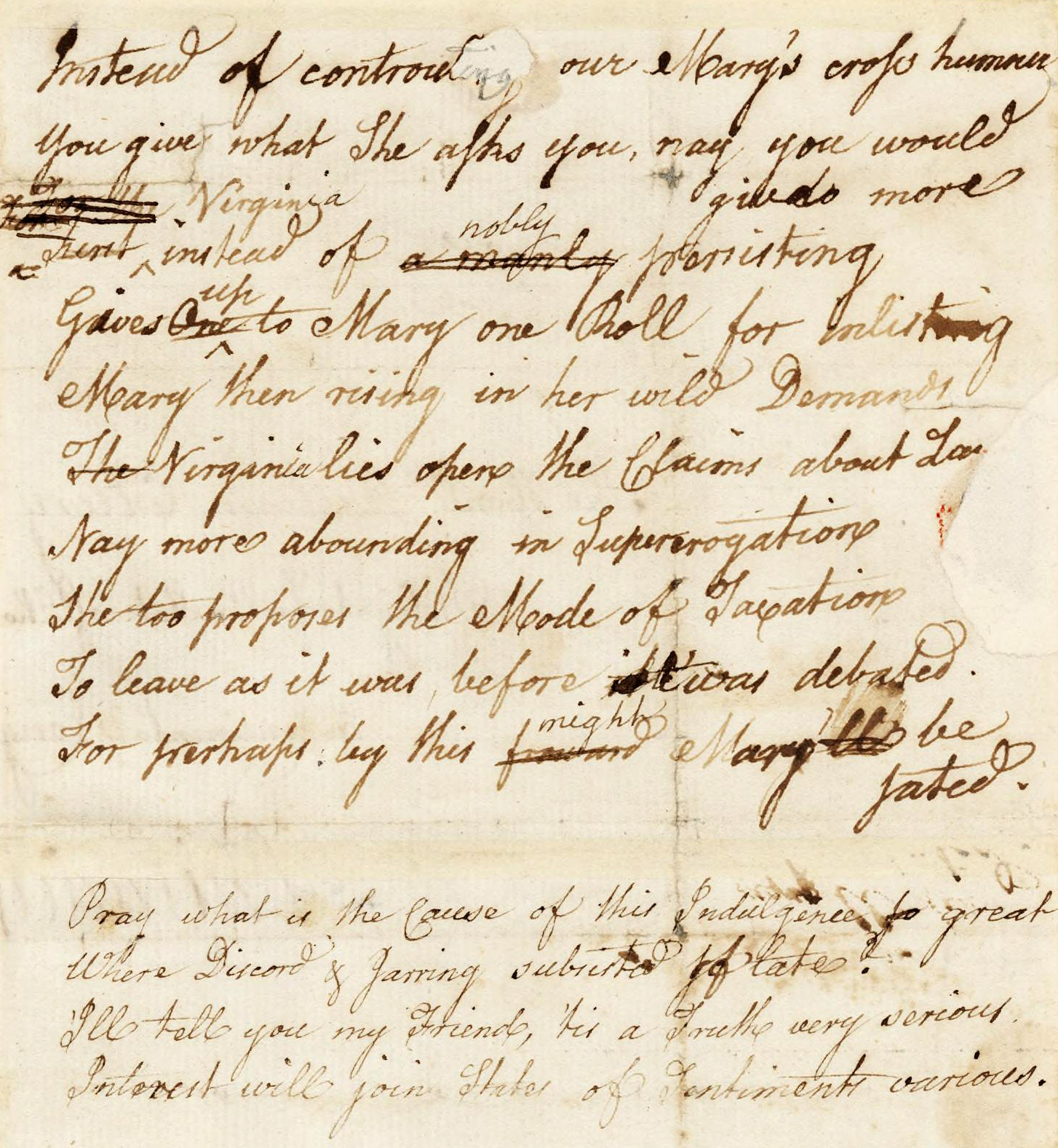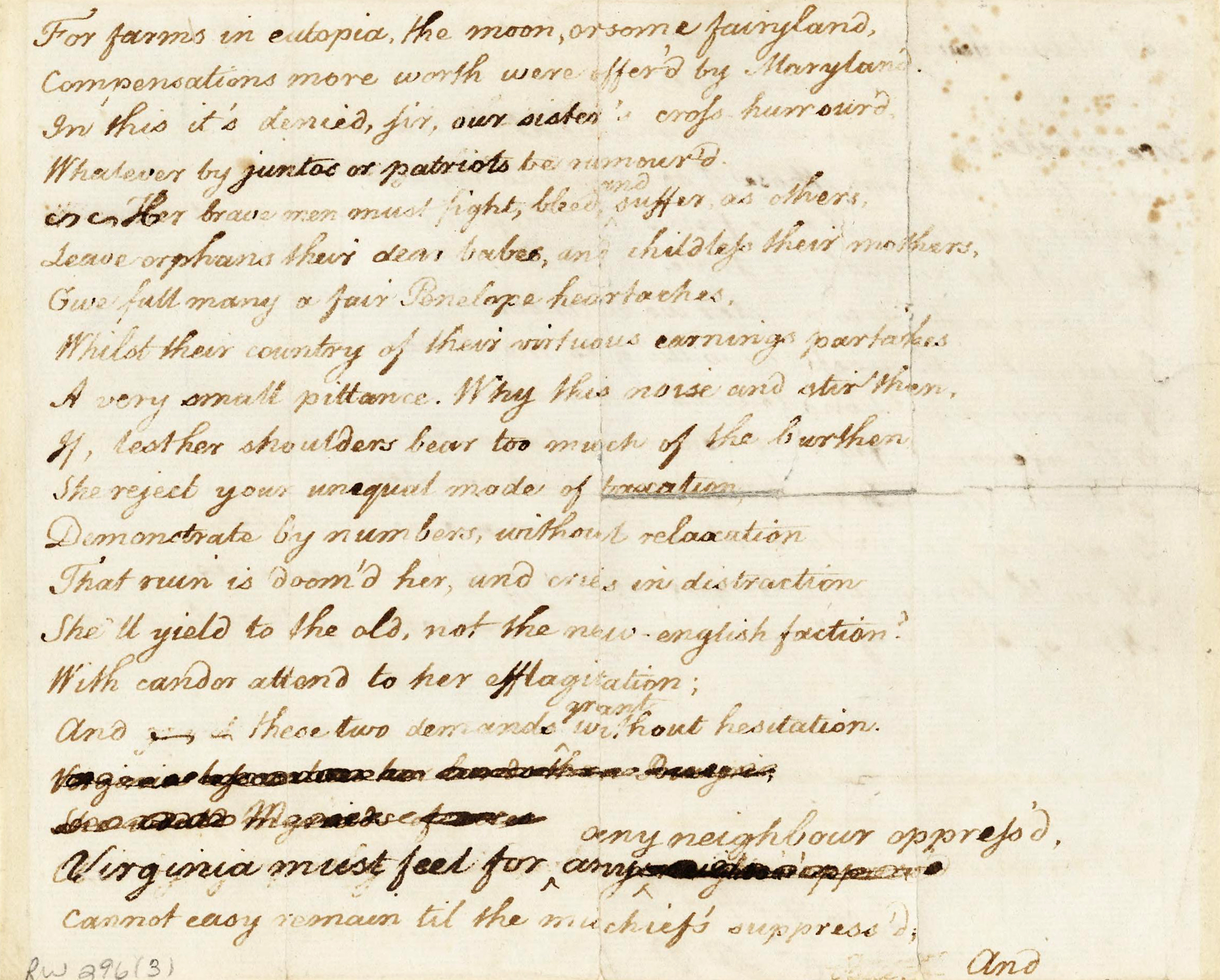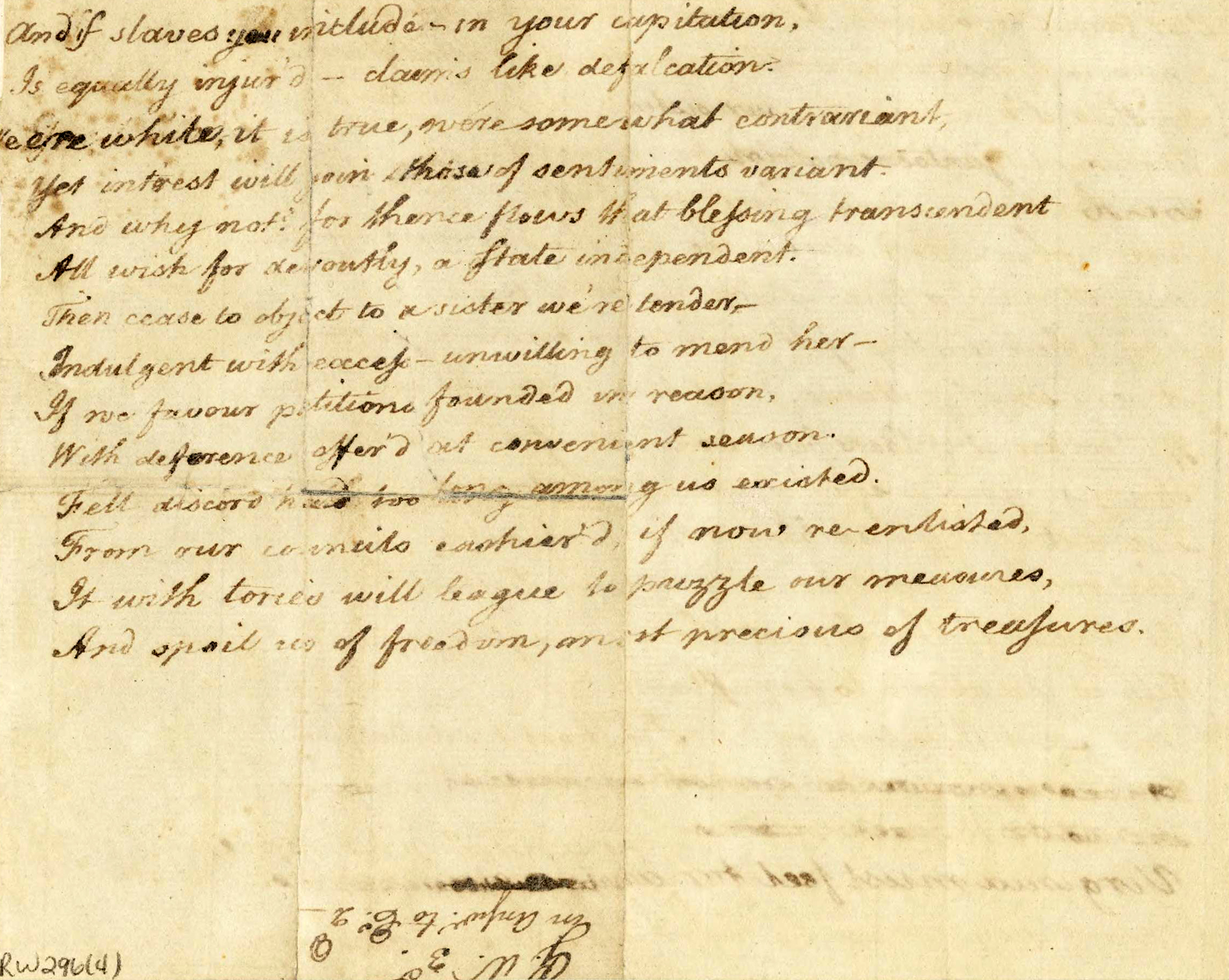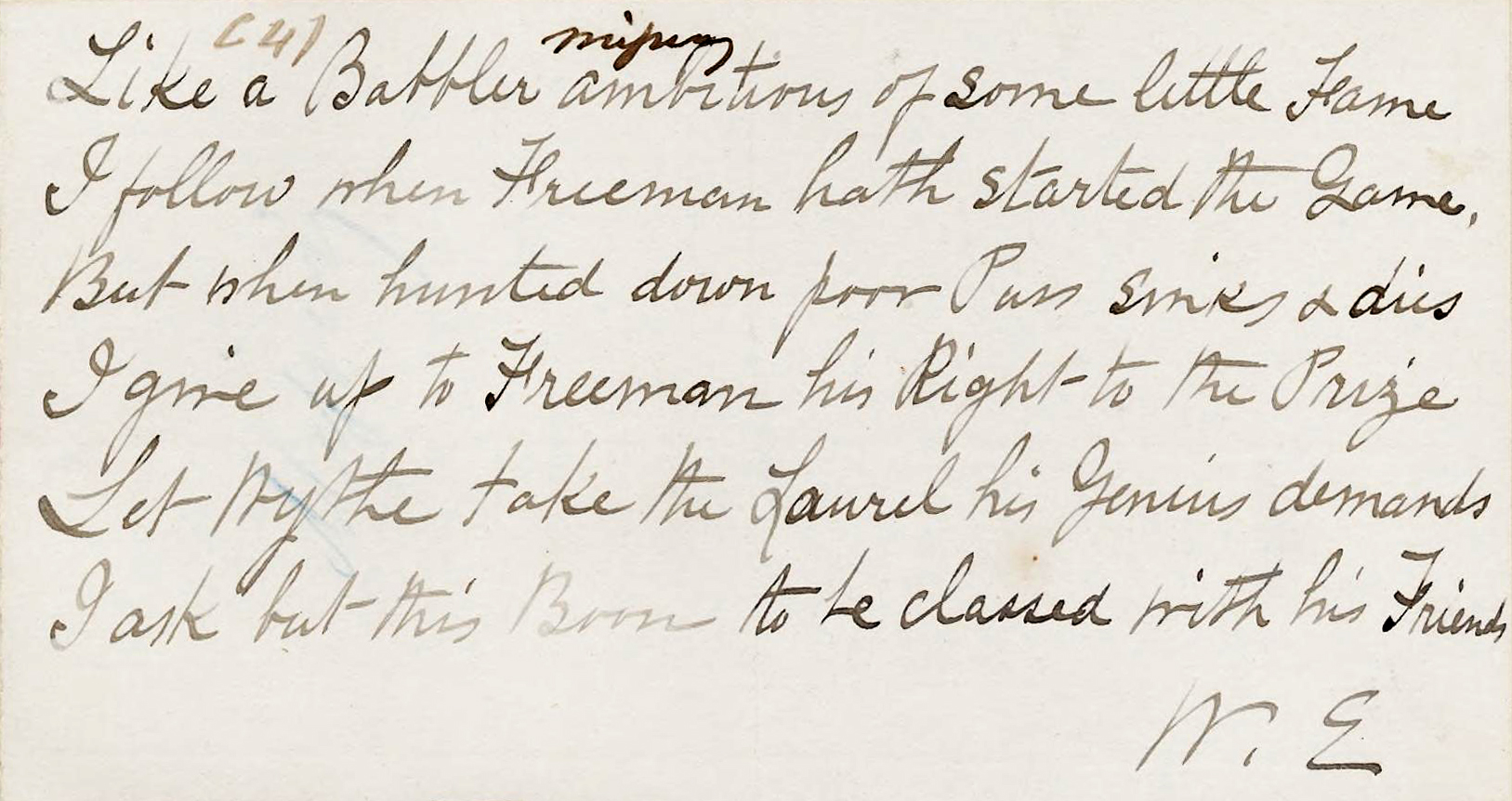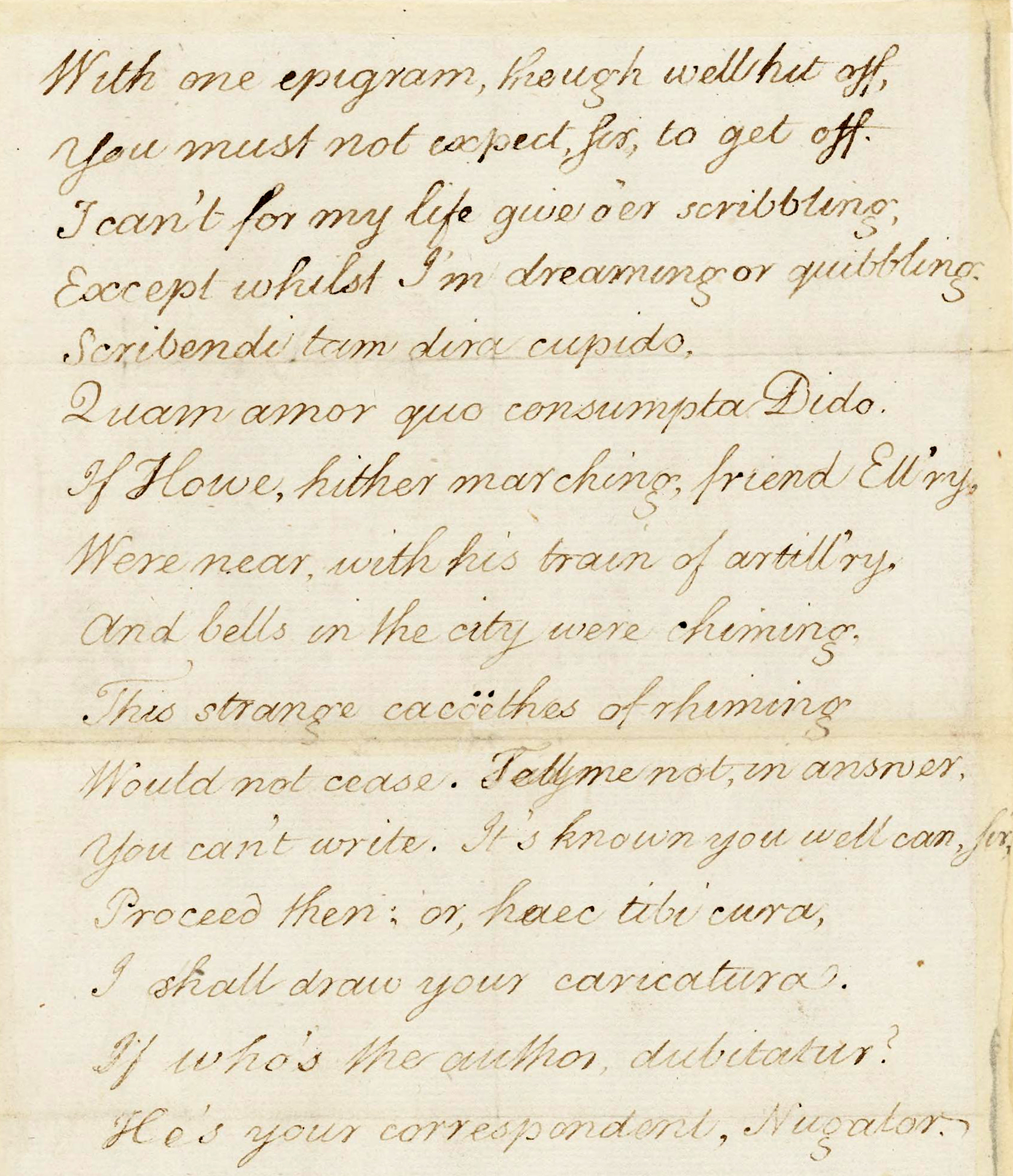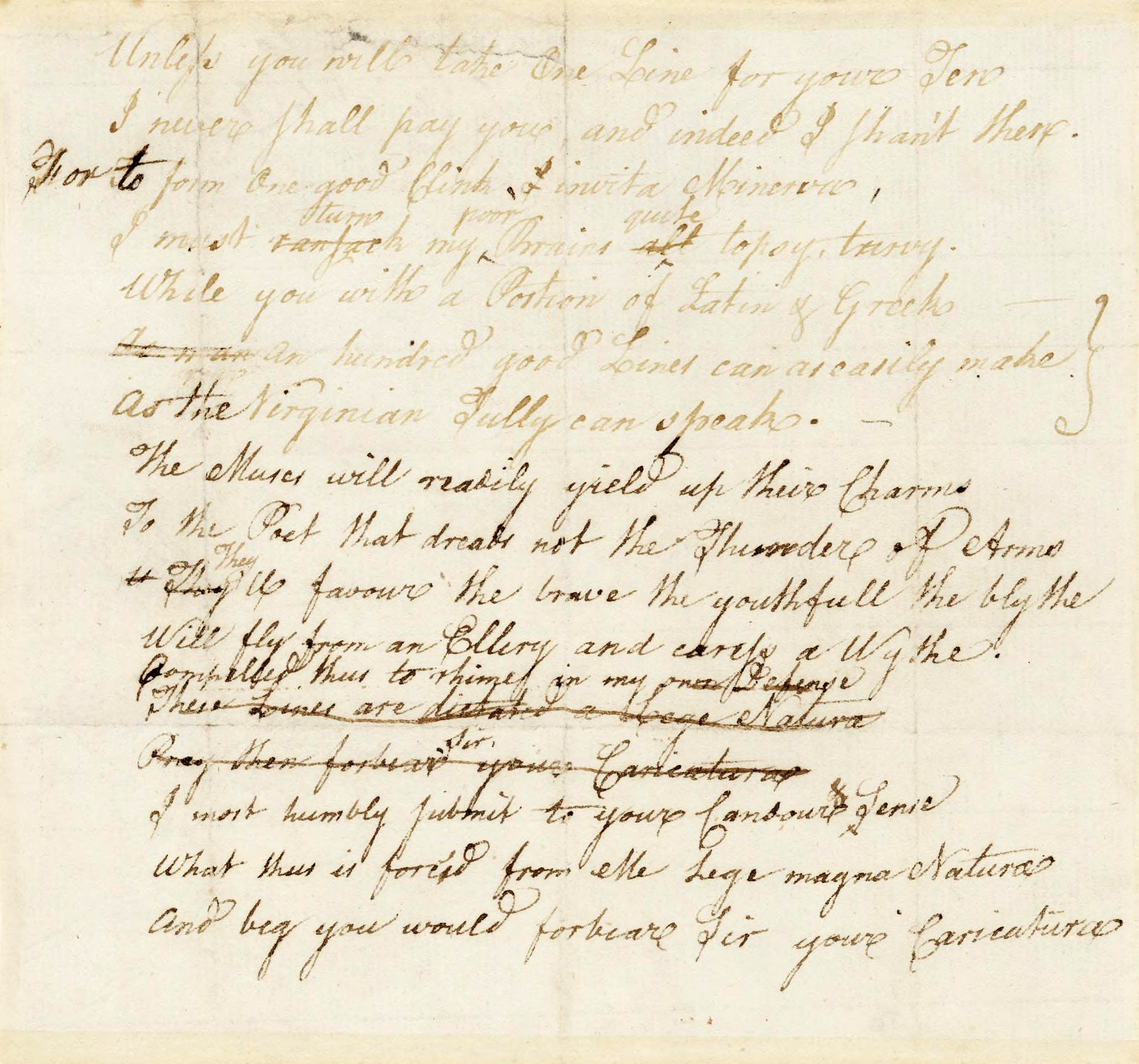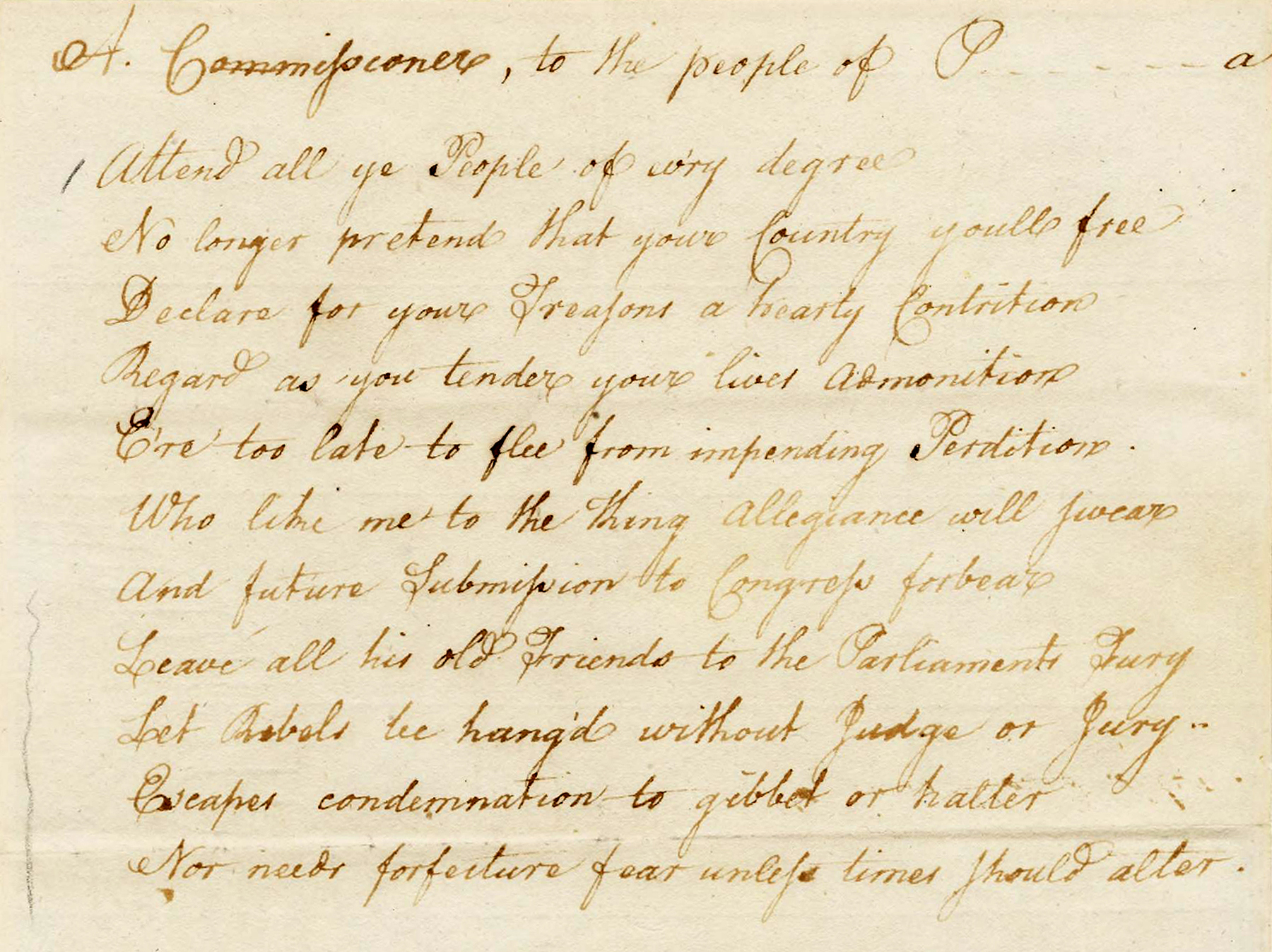Difference between revisions of "Poems on Witty Subjects in Congress"
(→"Instead of Controlling Our Mary's Cross Humor," by William Ellery) |
(→"Instead of Controlling Our Mary's Cross Humor," by William Ellery) |
||
| Line 56: | Line 56: | ||
She too proposes the Mode of Taxation<br /> | She too proposes the Mode of Taxation<br /> | ||
To leave as it was before it was debated<br /> | To leave as it was before it was debated<br /> | ||
| − | For perhaps by this <s>forward</s> might Mary be sated.<br /> | + | For perhaps by this <s>forward</s> might Mary<s>'ll</s> be sated.<br /> |
Pray, what is the Cause of this Indulgence so great<br /> | Pray, what is the Cause of this Indulgence so great<br /> | ||
Where Discord and Jarring subsisted of late?<br /> | Where Discord and Jarring subsisted of late?<br /> | ||
Revision as of 08:06, 15 April 2014
George Wythe and Willam Ellery, "Poems on Witty Subjects in Congress," American Revolutionary War Manuscripts Collection, Boston Public Library, MS.Ch.E.8.31-33.[1]
Contents
- 1 Manuscript text, November-December 1776
- 1.1 "A Member of the Antinovanglian Faction to W. E.," by George Wythe (VA)
- 1.2 "A Novanglican to G.W.," by William Ellery (RI)
- 1.3 "Instead of Controlling Our Mary's Cross Humor," by William Ellery
- 1.4 "For Farms in Utopia, the Moon, or Some Fairyland," by George Wythe
- 1.5 "Epigram," by William Ellery
- 1.6 "Answer to Epigram," by George Wythe
- 1.7 "Unless You Will Take One Line for Your Ten," by William Ellery
- 1.8 "A Commissioner, to the People of Philadelphia," by William Ellery
- 2 See also
- 3 References
- 4 External links
Manuscript text, November-December 1776
"A Member of the Antinovanglian Faction to W. E.," by George Wythe (VA)
Page seven from Poems on Witty Subjects in Congress,] from the Boston Public Library's American Revolutionary War Manuscripts collection.
For the two first Lines the author alludes to the Roman Catholics— |
"A Novanglican to G.W.," by William Ellery (RI)
Page three from Poems on Witty Subjects in Congress, from the Boston Public Library's American Revolutionary War Manuscripts collection.
As by works supererogatory |
"Instead of Controlling Our Mary's Cross Humor," by William Ellery
Page five from Poems on Witty Subjects in Congress, from the Boston Public Library's American Revolutionary War Manuscripts collection.
|
Instead of controlling our Mary's cross humour |
"For Farms in Utopia, the Moon, or Some Fairyland," by George Wythe
Page nine from Poems on Witty Subjects in Congress, from the Boston Public Library's American Revolutionary War Manuscripts collection.
Page ten from Poems on Witty Subjects in Congress, from the Boston Public Library's American Revolutionary War Manuscripts collection.
|
For farms in Utopia, the moon, or some fairyland And
|
|
And if slaves you include in your capitation, |
"Epigram," by William Ellery
Page eleven from Poems on Witty Subjects in Congress, from the Boston Public Library's American Revolutionary War Manuscripts collection.
|
Like a Babbler ambitious of some little fame W. E.
|
"Answer to Epigram," by George Wythe
Page eleven from Poems on Witty Subjects in Congress, from the Boston Public Library's American Revolutionary War Manuscripts collection.
|
With one epigram, though well hit off, |
"Unless You Will Take One Line for Your Ten," by William Ellery
Page fifteen from Poems on Witty Subjects in Congress, from the Boston Public Library's American Revolutionary War Manuscripts collection.
|
Unless you will take one Line for your Ten |
"A Commissioner, to the People of Philadelphia," by William Ellery
First page from Poems on Witty Subjects in Congress, from the Boston Public Library's American Revolutionary War Manuscripts collection.
Attend all ye People of wry degree |
See also
References
- ↑ See W. Edwin Hemphill, "George Wythe Courts the Muses," William and Mary Quarterly 3rd ser., 9, no. 3 (July 1952), 338-345.
- ↑ "Novanglian": New Englander.
- ↑ "Dire desire to write," paraphrase of Virgil, Aeneid, Book V, line 721.
- ↑ "The love which consumed Dido," Queen of Carthage.
- ↑ Ovid, Ex Ponto III, xxxvi.
- ↑ Jester, clown.
- ↑ Defy nature, literally "go against Minerva's will." Cicero, De Officiis, I, 31, 110.
- ↑ Wythe is a Virginian Cicero: [[wikipedia:Marcus Tullius Cicero|]].
- ↑ A great law of Nature.
External links
- Boston Public Library, Special Collections.
- American Revolutionary War Manuscripts at the Boston Public Library, Internet Archive.
- Read these poems in the Internet Archive.
